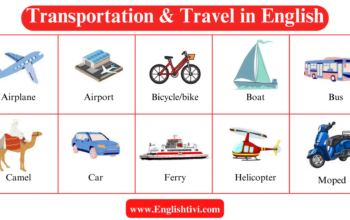Divert V1 V2 V3 V4 V5 is one of the verbs that are used very commonly in English tests as well as in everyday communication. Also, because it’s an irregular verb, divert doesn’t follow the regular rule. The verb “divert” has five different forms: base form, past simple, past participle form, present perfect, and present perfect participle. So what is divert‘s past? How do conjugate verbs with divert verbs?
⏩ Sign Up to Get Bonus
Let’s find out with English tivi in the article below.
See more at: Verbs
Divert of Definition and Meaning
Divert is a verb that means to turn aside, or to change the direction of. It is also a noun that refers to a side road, or a secondary route.
V1 V2 V3 V4 V5 Form of Divert
| Base Form (V1) | divert |
| Past Form (V2) | diverted |
| Past Participle Form (V3) | diverted |
| s / es/ es (V4) | diverts |
| ‘ing’ form (V5) | diverting |
Divert of Past Simple V2
The verb Divert is also employed in its V2 form as “diverted”’. It is used to indicate the past tense in sentences.
Divert of Past Participle V3
The V3 form is identical to the V2 form. The V3 form is “diverted”. Diverted is used in the past or present perfect tense.
+ In the present perfect tense, we use the word V1 as ‘have + diverted‘ or ‘has + diverted'.
- I, you, and we are used as ‘have + diverted‘.
- ‘has + diverted' is used for he, she, and it.
+ If you need to use the past perfect tense, use ‘had + diverted‘ regardless of the subject.
You might also like: ALL the English Grammar Basics You Need
Conjugation of Divert V1 V2 V3 V4 V5
Conjugation table: divert | |||
| Number | Singular | ||
| Present Simple of divert | I | You | She/He/It |
| divert | divert | diverts | |
| Plural | |||
| We | You | They | |
| divert | divert | divert | |
| Present Continuous of divert | I | You | She/He/It |
| am diverting | are diverting | is diverting | |
| Plural | |||
| We | You | They | |
| are diverting | are diverting | are diverting | |
| Present Perfect of divert | I | You | She/He/It |
| have diverted | have diverted | has diverted | |
| Plural | |||
| We | You | They | |
| have diverted | have diverted | have diverted | |
| Present Perfect Continuous of divert | I | You | She/He/It |
| have been diverting | have been diverting | has been diverting | |
| Plural | |||
| We | You | They | |
| have been diverting | have been diverting | have been diverting | |
| Past Simple of divert | I | You | She/He/It |
| diverted | diverted | diverted | |
| Plural | |||
| We | You | They | |
| diverted | diverted | diverted | |
| Past Continuous of divert | I | You | She/He/It |
| was diverting | were diverting | was diverting | |
| Plural | |||
| We | You | They | |
| were diverting | were diverting | were diverting | |
| Past Perfect of divert | I | You | She/He/It |
| had diverted | had diverted | had diverted | |
| Plural | |||
| We | You | They | |
| had diverted | had diverted | had diverted | |
| Past Perfect Continuous of divert | I | You | She/He/It |
| had been diverting | had been diverting | had been diverting | |
| Plural | |||
| We | You | They | |
| had been diverting | had been diverting | had been diverting | |
| Future Simple of divert | I | You | She/He/It |
| will/shall divert | will/shall divert | will/shall divert | |
| Plural | |||
| We | You | They | |
| will/shall divert | will/shall divert | will/shall divert | |
| Future Continuous of divert | I | You | She/He/It |
| will/shall be diverting | will/shall be diverting | will/shall be diverting | |
| Plural | |||
| We | You | They | |
| will/shall be diverting | will/shall be diverting | will/shall be diverting | |
| Future Perfect of divert | I | You | She/He/It |
| will/shall have diverted | will/shall have diverted | will/shall have diverted | |
| Plural | |||
| We | You | They | |
| will/shall have diverted | will/shall have diverted | will/shall have diverted | |
| Future Perfect Continuous of divert | I | You | She/He/It |
| will/shall have been diverting | will/shall have been diverting | will/shall have been diverting | |
| Plural | |||
| We | You | They | |
| will/shall have been diverting | will/shall have been diverting | will/shall have been diverting | |
| Conditional Present of divert | I | You | She/He/It |
| would divert | would divert | would divert | |
| Plural | |||
| We | You | They | |
| would divert | would divert | would divert | |
| Conditional Perfect of divert | I | You | She/He/It |
| would have diverted | would have diverted | would have diverted | |
| Plural | |||
| We | You | They | |
| would have diverted | would have diverted | would have diverted | |
| Conditional Present Continuous of divert | I | You | She/He/It |
| would be diverting | would be diverting | would be diverting | |
| Plural | |||
| We | You | They | |
| would be diverting | would be diverting | would be diverting | |
| Conditional Perfect Continuous of divert | I | You | She/He/It |
| would have been diverting | would have been diverting | would have been diverting | |
| Plural | |||
| We | You | They | |
| would have been diverting | would have been diverting | would have been diverting | |
| Present Subjunctive of divert | I | You | She/He/It |
| divert | divert | divert | |
| Plural | |||
| We | You | They | |
| divert | divert | divert | |
| Past Subjunctive of divert | I | You | She/He/It |
| diverted | diverted | diverted | |
| Plural | |||
| We | You | They | |
| diverted | diverted | diverted | |
| Past Perfect Subjunctive of divert | I | You | She/He/It |
| had diverted | had diverted | had diverted | |
| Plural | |||
| We | You | They | |
| had diverted | had diverted | had diverted | |
| Imperative of divert | I | You | She/He/It |
| divert | |||
| Plural | |||
| We | You | They | |
| Let’s divert | divert | ||
See more at: Vocabulary
Example Sentences with Divert V1 V2 V3 V4 V5
In this section, we will learn about divert sentence examples:
- While the main road is being resurfaced, traffic will be diverted to the side streets.
- Military action now may divert attention away from upcoming votes on health-care legislation in Congress.
- Many deliveries have been diverted from airplanes to railways.
- He‘s diverting everyone with magic
Synonym Words For Divert
Synonym of divert word list. Here are a variety of words whose meaning is nearly the synonym of divert:
- redirect
- deflect
- avert
- reroute
- deviate
- swing
- switch
- turn
- detract
- distract
- sidetrack
- abstract
Opposite Words For Divert
The antonym of divert word list. Here are some words that have nearly the opposite meaning as divert:
- anger
- irritate
- maintain
- stay
- straighten
- upset
- attract
- unite
- bore
- annoy
- depress
- disappoint
- disturb
- focus
- attach
- combine
- connect
You might also like: Best List of Irregular Verbs in English
Some Frequently Asked Questions About Divert (Verb)
What is the V1 V2 V3 V4 V5 of divert?
The past tense of divert is diverted. The third-person singular simple present indicative form of divert is diverts. The present participle of divert is diverting. The past participle of divert is diverted.
| Base Form (V1) | divert |
| Past Form (V2) | diverted |
| Past Participle Form (V3) | diverted |
| s / es/ es (V4) | diverts |
| ‘ing’ form (V5) | diverting |
What is the V2 and V3 form of divert?
+ The V2 and V3 form of divert is “diverted“.
What is the sentence of divert?
What is the past tense V2 of divert?
+ The past tense of divert is “diverted“.
What is the past participle V3 of divert?
+ The past participle of divert is “diverted“.
What is the present participle V5 of divert?
+ The present participle of divert is “diverting“.
Conclusion
Let’s learn with English TV the structure of the verb “Divert V1 V2 V3 V4 V5“: Base Form, Past Simple, Present Continuous and Present Continuous and Present Continuous and Present Continuous forms. We wish you all the best of luck.
You should subscribe to the English TV YouTube channel if you want to learn more about the English language and improve your proficiency.





